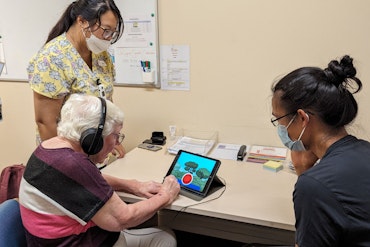Meet the new face behind 12 percent of Australia’s aged care
Keen to meet the CEO? Jason Kara opens up about his new role in shaping Australia’s aged care sector.
![<p>Jason Kara has previously worked in significant roles in the public and not-for-profit sectors. [Source: Supplied]</p>](https://agedcareguide-assets.imgix.net/news/articles/wp/cathhealthaus__0310.jpg?fm=pjpg&format=auto&w=550&q=65)
Jason Kara has previously worked in significant roles in the public and not-for-profit sectors. [Source: Supplied]
Key points:
- Mr Kara, former director of aged care at Catholic Health Australia, has recently taken on the role at a pivotal time for the national care sector
- Catholic Health Australia is a peak advocacy body representing the largest non-Government grouping of health, community and aged care services
- CHA accounts for approximately 12 percent of all aged care facilities in Australia
On October 3, 2023, Jason Kara commenced his duties as the new chief executive officer of Catholic Health Australia.
The CHA is the biggest non-Government association of health, community and aged care services in Australia. The organisation is responsible for around 10 percent of hospital-based healthcare, 25 percent of private hospital care, five percent of public hospital care, 12 percent of aged care facilities and 20 percent of home care and support for older individuals in the country.
CHA Board Director Hon. John Watkins AM said Jason’s advocacy, policy and energy are an asset to the organisation.
“I am delighted to welcome Jason Kara as the new CEO of Catholic Health Australia,” Mr Watkins said.
“Jason has been an outstanding advocate for Catholic aged care and the most vulnerable in society. He will bring his experience and compassionate advocacy to the broader health, aged and community care sectors.
“The Board is pleased to appoint Jason to the role of CEO at a critical time for the care sector in Australia. He will continue to support our members to make a real difference to the lives of all in the community, but especially the poor, the vulnerable and the marginalised.”
Mr Kara has previously served as a senior executive in the public service focusing on housing and homelessness outcomes; volunteered as an advisor building capacity in the disability sector in Vanuatu; in addition to working as a senior advisor in the Office of the NSW Premier. Jason has also served as a board director for the Community Restorative Centre, a not-for-profit organisation tackling recidivism.
Jason Kara told Talking Aged Care journalist David McManus that as a not-for-profit organisation, CHA is solely dedicated to delivering incredible care and helping the vulnerable.
“People can expect to be welcomed by caring and committed staff who aim to support their life and aspirations in this next stage of life. People who come into residential aged care are moving home and we are there to support this, providing care, companionship and lifestyle,” Mr Kara explained.
“There is an important and distinct role for Catholic health and aged care in Australia. We value the dignity of every person. Aged care should not only address [key performance indicators] on physical health but also a person’s mental, emotional and social well-being.
“This includes providing them with access to mental health support, social activities, spiritual connection and opportunities for engagement and connection.
“In August, CHA members were fortunate to hear from demographer Bernard Salt who addressed our national conference in Perth. He outlined some of the demographic trends shaping the demand for Catholic care services, including what he called ‘an epidemic of loneliness and anxiety’ in Australia.”
Former CHA CEO Pat Garcia stepped down from the role in August to work as general counsel for St Vincent’s Health Australia after four years in the chief executive position.
Mr Kara said that Australians increasingly want to live in their own homes for as long as possible, so the support at home market will continue to grow, driven by an ageing population and economic pressures, in addition to changing consumer preferences.
“Providers will need to be adaptive to the consumer-directed care approach, which gives individuals more control and choice over the types of care and services they receive. This empowers consumers to tailor their care plans to their specific needs and preferences, including cultural needs.
“To deliver on this, providers will need to understand and adopt new technology. This includes the use of remote monitoring devices, telehealth services and other digital tools to enhance communication between caregivers and clients, as well as improve the overall quality of care.
“Workforce development will continue to be a central issue in any care model delivered in the home, with the regulatory system ensuring that caregivers have the necessary skills and qualifications to provide high-quality care to clients — especially in specialised areas like dementia care or palliative care.”
Do you agree with Jason? Let the team at Talking Aged Care know your thoughts and subscribe to the Aged Care Guide newsletter for more industry updates!























